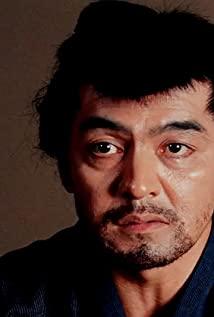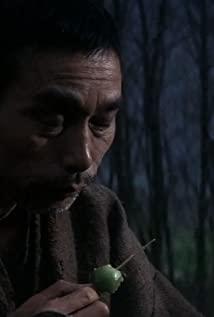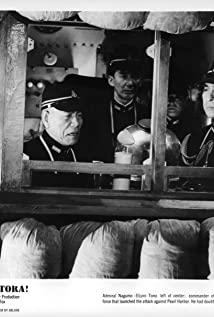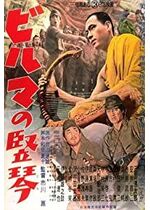-
Eusebio 2022-03-18 09:01:07
Religiously implanted humanitarian anti-war texts (despite limitations), images of martyrs in disasters, spiritual fission in the context of war, emotional expression of prose styles, and the establishment of a reasonable narrative basis. Ichikawa became a masterpiece with a certain fantasy color, and was remade in 1985. I have to admit that the sound of music that transcends the national language is particularly moving when it sounds. I like it very...
-
Lamont 2022-03-18 09:01:07
The robber asked Nakajima to exchange his waistband for banana leaves and robbed him politely. Everyone laughed, so handsome! Master Tang once said that I like movies. Contemporaneous with "Tunnel War" and "Land Mine War" Indeed, Zen principles and Buddha's predestined relationship, broad-minded, profound and majestic. The second half is so poetic that most people can't understand...
-
Shaun 2022-03-17 09:01:08
In July 1945, the Japanese army was defeated in Burma. Sad homesickness, nice harp. The Japanese version of "Lover Sorrow" was later written by Li Shutong "outside the long pavilion, on the edge of the old road, and the green grass and green sky..."-the original version is from the United States. War brings pain and sorrow, no matter which side you are on. Those young lives. But I don't like the "military, civilian, fish and water" scene created by an old woman....
-
Iva 2022-03-17 09:01:08
A lot of lyricism; Ichikawa-kun’s humanistic care; symbolic characters: a monk with a parrot standing on his shoulders and a harp in his hand, a Japanese soldier who persists, a corpse with no burial ground, a kind old woman with a bamboo basket above her head, white and tender Tender and sensible as the captain of the movie lead. The film style is completely different from the contemporary Kurosawa Akira and Kobayashi Masaki. It looks more like a narrative lyrical movie, which uses the group...
-
Beth 2022-03-16 09:01:07
t38517563e Subtitles: http://shooter.cn/xml/sub/54/54453.xml I am so...
-
Randi 2022-03-16 09:01:07
I found that the shortcomings and advantages of my favorite film are as obvious as the shortcomings. I like Mizushima just because he is suffering. The Chinese who always emphasize that he is a victim should not watch it. In the end, why do you have to confess the letter, because the captain and Mizushima are CPs,...
-
Alyce 2022-03-15 09:01:09
Translated the CC tidbits’ interview with the Three Kingdoms and threw it to station B. I complained about Shichuankun and it’s quite interesting, and I really can’t sing...|@ Ozubook| Alas, the Three Kingdoms in this film are so handsome (I only have This kind of afterthought...O<-<) I feel violently embarrassed as soon as the music film speaks, but it's okay...|Did he sing?...
-
Dominique 2022-03-15 09:01:09
It's not my ideology, the artistic achievement of this film is far inferior to "Wildfire". The main central idea is that "the lives of comrades-in-arms are above all else", there is no struggle on the line of life and death, nor does it reflect the destruction of the natives. "The land of Burma is red" echoes the heroic spirit of Japanese soldiers condensed into red agate, literally turning "aggression" into "liberation" militarism. Only the use of music is interesting, covering the whole film...
-
General 2022-03-14 14:12:28
1. Clear the tranquility of the Zen image, and the melodious soundtrack of the mirror water stop. 2. The music captain who cherishes life, the philosophical harp soldier, and the innocent Japanese chorus may exist, but it must be an individual case; 3. Since the Allied film censorship system was revoked in 1952 , The ideological core of World War II films gradually turned to the Japanese self-identification as war victims, and this film is one of the best....
-
Cathryn 2022-01-20 08:03:36
There is no need to criticize the author for not seeing the other side of the war, because the work is not obligated to be comprehensive and neutral. This film has nothing to do with war, it is a story about melancholy. After paranoia and fanaticism are thwarted, the deepest sadness buried in human nature will overshadow everything. A narrative structure with an ancient legendary style. As soon as the war ended, some Japanese calmed down and looked at our pain from an eternal starting point. No...
The Burmese Harp Comments
-
Benedict 2022-01-20 08:03:36
When will there be "Chinese Guqin"
"The Harp of Burma" Japanese film master Chuan Kun
is a black and white film, and the film is as simple as black and white: Mizushima is the scout who explores the road, and the harp is his signal after he explores the road. On the eve of the Japanese armistice, he was ordered to notify the... -
Hiram 2022-04-19 09:02:44
wrong tonality
While the film was being shown, my husband who got off work pushed open the door and took off his shoes, and suddenly exclaimed, "Yo! What film, this music is like...a memorial service."
This sentence hit me. The soundtrack is indeed mournful. Then cover the whole piece like wallpaper. When the...
Top cast
-
Captain Inouye: The songs uplifted our spirits and sometimes our hearts.
-
Voice of Mizushima's parrot: No, I can't go back.
Director: Kon Ichikawa
Language: Japanese,English,Burmese Release date: April 28, 1967








